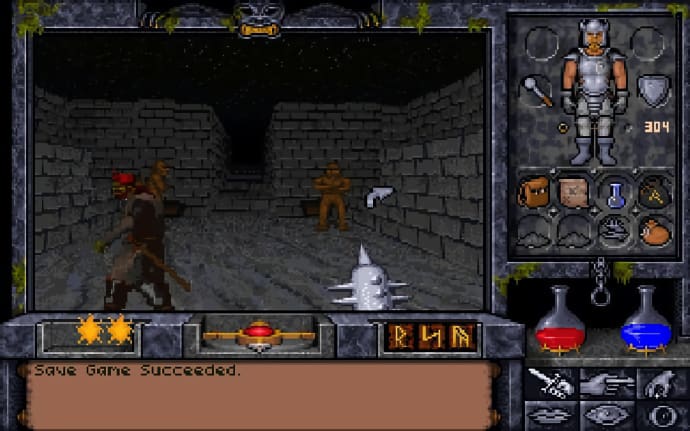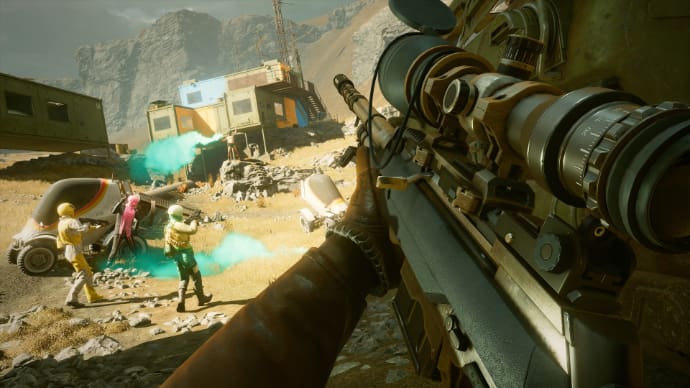For example, the globally enjoyed genres of MOBAs and battle royale games didn’t just appear out of thin air. They have roots in older, more classic video game genres: MOBAs evolved out of RTS games while battle royale games evolved out of survival shooters. Another growing example of a video game genre that puts a big twist on a classic genre is the immersive sim. Don’t know what that entails? Even so, you’ve probably played one of these games—or at least know about the big ones that have players hooked. Here’s what you need to know about the immersive sim genre, where it came from, and the best examples of this intense kind of game.
What Does “Immersive Sim” Mean?
The immersive sim genre is almost the exact opposite of another genre you might know of: the metroidvania genre. But unlike the metroidvania genre—which uses the names of Metroid and Castlevania to give you a sense of what the genre represents—the immersive sim genre doesn’t really tell you much. In fact, it’s easy to misunderstand. (If you’re thinking The Sims, you’re way off track!) Immersive sims aren’t simulation games in the traditional sense, so there’s no actual simulation of life-like activities. You won’t be city planning (like in Sim City) and you won’t be in the shoes of a very specific occupation worker (like PowerWash Simulator). Rather, immersive sims emphasize player choice and game world immersion through a variety of different mechanics. This means deliberately pulling away from overly “gamey” elements in favor of presenting a game world that feels like an actual world. Think away from Call of Duty-style scripted events and more towards open-world gameplay mechanics and systems. Of course, every immersive sim game varies in how they approach this, but as a broad overview of the genre, that’s what you can expect.
The Earliest Immersive Sims
Still not entirely sure what an immersive sim is? There’s no better example than the classic game that sparked the genre: Deus Ex. While a handful of immersive sims existed before Deus Ex, they didn’t market themselves as such. Game designer Warren Spector first used the term when describing Deus Ex’s development (while crediting the actual coining of the term to colleague Doug Church). Earlier immersive sims were a massive influence on Spector and his team at Looking Glass Studios. These games include Ultima Underworld: The Stygian Abyss (widely considered to be the first immersive sim) as well as follow-ups like Arx Fatalis. Looking Glass Studios developed several games that are now seen as the earliest immersive sims, including System Shock and System Shock 2 as well as Thief and Thief 2. Most of Looking Glass Studios’ immersive sims rely heavily on stealth elements and gameplay, but that doesn’t mean all immersive sims need stealth elements. The genre itself has evolved over the years.
Modern Immersive Sims, Defined
I think one of the easiest ways to describe today’s immersive sims in a nutshell is “an RPG but not an RPG.” Immersive sims aim to provide the same level of game world immersion that you’d find in an RPG, and you’re often looting gear and acquiring new skills, but you’re not “leveling up” your character. Sometimes, a game we typically think of as an RPG can also pull double duty as an immersive sim. For example, Vampire: the Masquerade: Bloodlines winds up on many “best RPGs of all time” lists while also showing up on “best immersive sims” lists. Leaning more toward the RPG side are the Elder Scrolls games, including Oblivion and Skyrim. While these have plenty of RPG systems, they’ve certainly absorbed elements of immersive sims as well, which is likely why both of those games are so wildly popular. And while immersive sims tend to be bloated with dozens of different game systems, there are slim immersive sims, too. For example, the Bioshock games are immersive sims, but they feel more like straight shooters than anything in the Deus Ex series.
The Best Modern Immersive Sims
Some of the original immersive sims are still living through direct sequels or spiritual successors. For example, the last two entries in the Deus Ex series—2011’s Deus Ex: Human Revolution and 2016’s Deus Ex: Mankind Divided—were fairly well received. But if there’s one game studio that’s singlehandedly holding the torch for immersive sims, it’s developer Arkane Studios. This is the same studio that gave us the Dishonored series as well as 2017’s Prey, which somehow took the license for a mediocre sci-fi shooter and gave us an incredible sci-fi immersive sim. In recent years, immersive sims have been playing with other genres and incorporating new concepts. Arkane’s recent Deathloop adds time loop mechanics while the company’s upcoming Redfall looks to marry the immersive sim genre with four-player cooperative mechanics. And it’s not always about the big studios. WolfEye Studios (run by two former Arkane developers) released Weird West earlier this year, which takes the immersive sim from its typical first-person perspective and brings it into a top-down view. Weird West is a smaller game compared to most immersive sims, but it’s every bit as engrossing as bigger-budget immersive sims. In the years to come, we’ll likely see more and more game genres start embracing immersive sim mechanics, just like how most video games now incorporate RPG mechanics to some degree. And for us, that only means one thing: it’s a good time to be a gamer. Read next: The best simulation (sim) games on Xbox Game Pass







